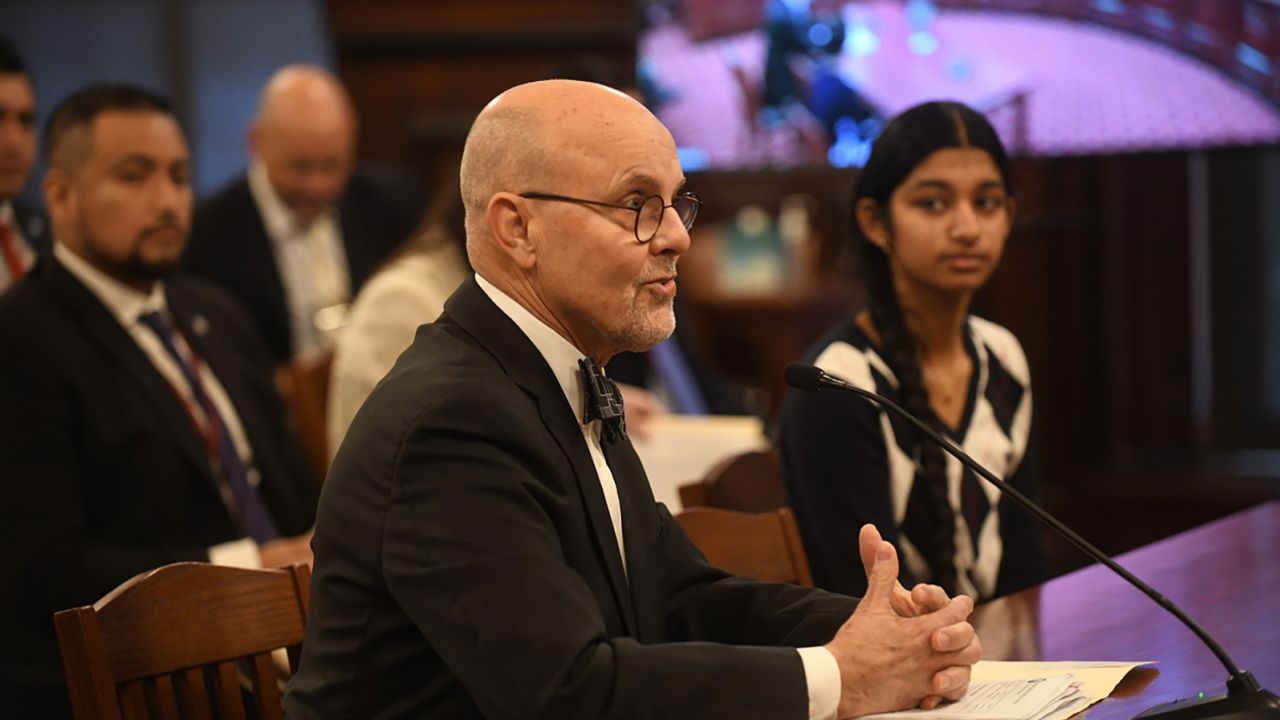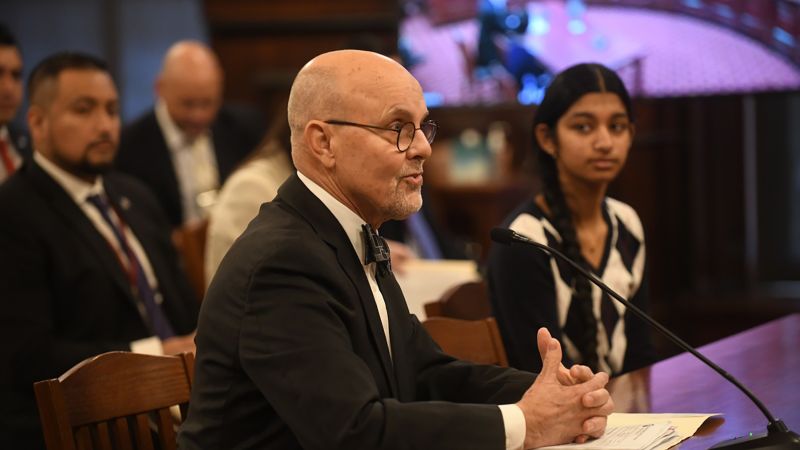CNN
—
When 16-year-old Shreya Nallamothu from Normal, Illinois, scrolled through social media platforms to pass time during the pandemic, she became increasingly frustrated with the number of children she saw featured in family vlogs.
She recalled the many home videos her parents filmed of herself and her sister over the years: taking their first steps, going to school and other “embarrassing stuff.”
“I’m so glad those videos stayed in the family,” she said. “It made me realize family vlogging is putting very private and intimate moments onto the internet.”
She said reminders and lectures from her parents about how everything is permanent online intensified her reaction to the videos she saw of kid influencers. “The fact that these kids are either too young to grasp that or weren’t given the chance to grasp that is really sad.”
Nallamothu wrote a letter last year to her state senator, Democrat Dave Koehler, urging him to consider legislation to protect young influencers. Last week, her home state became the first to pass a law that establishes safeguards for minors who are featured in online videos – and how they’re compensated.
Illinois Gov. J. B. Pritzker on Friday signed a bill, inspired by Nallamothu’s letter, amending the state’s Child Labor Law that will allow teenagers over the age of 18 to take legal action against their parents if they were featured in monetized social media videos and not properly compensated, similar to the rights held by child actors.
Starting July 1 2024, parents in Illinois will be required to put aside 50% of earnings for a piece of content into a blocked trust fund for the child, based on the percentage of time they’re featured in the video. For example, if a child is in 50% of a video, they should receive 25% of the funds; if they’re in 100%, they are required to get 50% of the earnings. However, this only applies in scenarios during which the child appears on the screen for more than 30% of the vlogs in a 12-month period.
“We understand that parents should receive compensation too because they have equity in this, but we don’t want to forget about the child,” Koehler told CNN.

Many YouTube parent vloggers or social media influencers post multiple videos each month or weekly, sharing intimate details about their lives, ranging from family financial troubles and the birth of a new baby to opening new toys or going through a child’s phone or report card. Although children are predominantly featured in these monetized videos, parents have had no legal obligation to give them any portion of the earnings.
Meanwhile, kid influencer accounts, which can at times earn $20,000 or more for sponsored posts, are typically run by parents and not often set up in the child’s name due to age restrictions on social media platforms.
“We often see with emerging technology and trends that legislation is always a reaction to that,” Koehler said. “But we know with the explosion of social media that parents are using it to monetize kids being on videos. If money is being made and nothing is set up for the children, it’s the same thing as a child actor.”
The new law is modeled off of the 1936 Jackie Coogan’s Law, the Hollywood silent actor discovered by Charlie Chaplin whose parents swindled him out of his earnings. That California law required parents to set aside a portion of 15% of child earnings in a blocked trust account that the child actor could access after the age of 18.
Although similar bills have been proposed in California and Washington, Jessica Maddox — an assistant professor at The University of Alabama who studies the social media influencer community — said she’s hopeful other states will follow in Illinois’ footsteps.
“Even though Illinois is the first state to pass such a law, this legislation is a long time coming,” Maddox said. “Social media labor and careers are becoming increasingly common and viable forms of income, and it’s important that the law catches up with technology to ensure minors aren’t being exploited.”
Maddox said it also breathes new life into the long-simmering debate over what is appropriate for parents to document online and whether a child can really consent to participating.
“I’ve seen organic conversations start to emerge between individuals who had been featured heavily in their parents’ social media content but are now of age to tell their stories and admit that had they really understood what was going on, they would have never consented for their lives to be broadcast for everyone.”
Chris McCarty — the 19-year-old founder of Quit Clicking Kids, an advocacy and education site to combat the monetization of children on social media, who is helping to develop child influencer legislation in Washington State — believes that as the kids featured in family vlogs grow up and share their stories, there will be an increase in public pressure to provide more privacy protections.
“When children are slightly older, often the narratives get increasingly personal; for example. detailing trouble with bullies, first periods, doctor’s visits, and mental health issues,” McCarty said. “A lot of consumers assume that children working in a family vlog and child actors have the same experiences. This is not the case. As difficult as it is to be a child actor, child actors are still playing a part rather than having their intimate personal details shared for entertainment and monetary purposes.”
Nallamothu agrees that the next step is for legislation to evolve over time to include more regulations around consent.
“I know this bill isn’t going to be perfect off the bat but I don’t want perfection to get in the way of progress because regulations have only started coming up,” she said. “I’m glad it’s getting there.”

